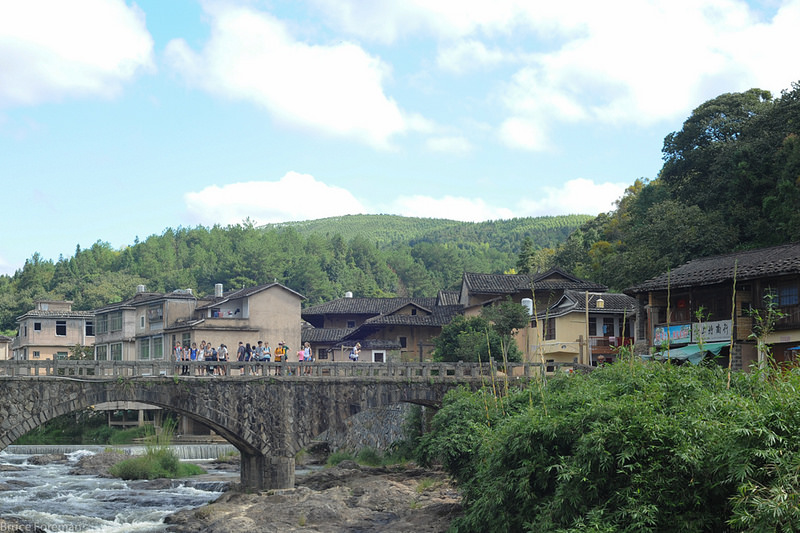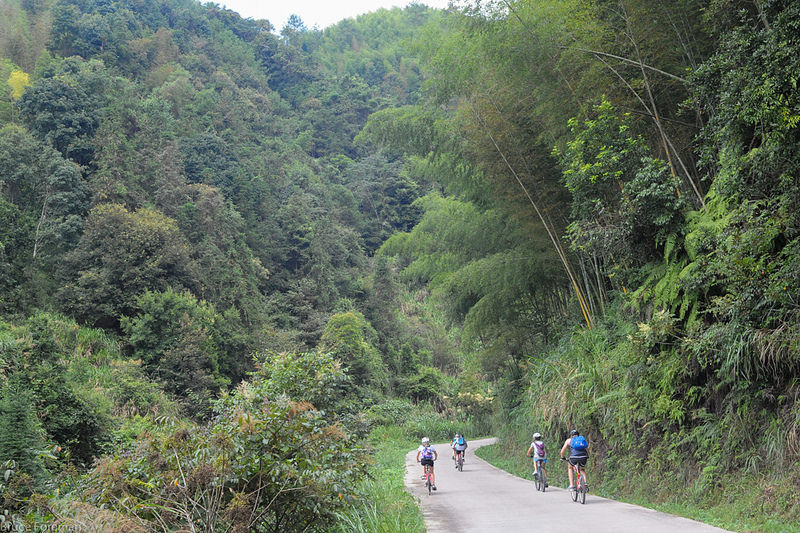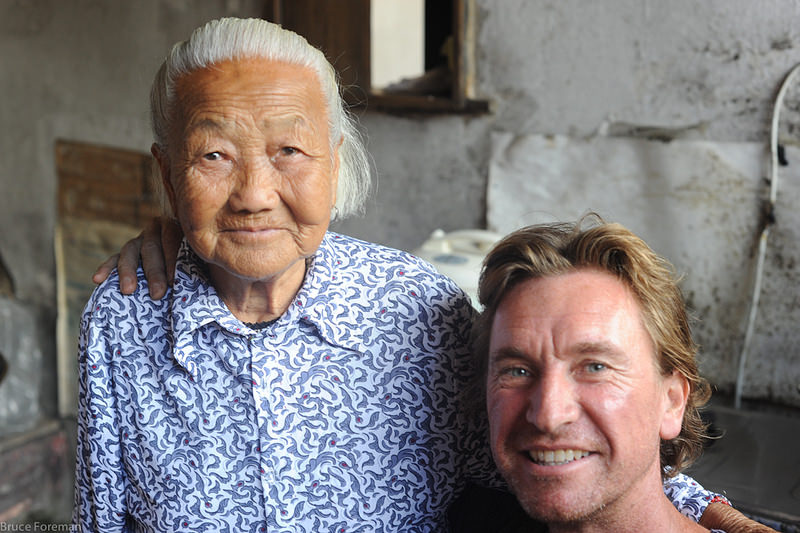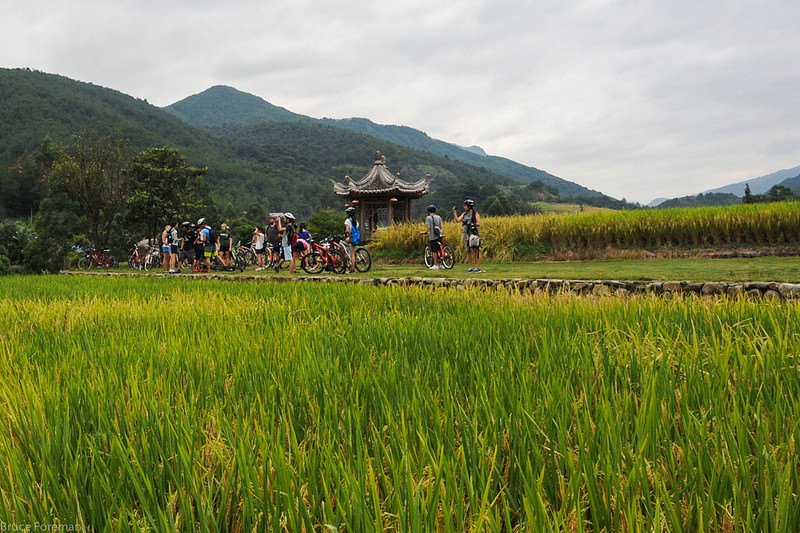
The beauty of the landscape is majestic: the tea fields with their sweet scent, the rivers that wind, the valleys that stretch, the tulou roundhouses that dot the hills. But, in reminiscing about this fall’s Fujian programs, I am always reminded of the people. Of the amazing students and teachers with whom we experienced these lands, and of the countless locals who opened their doors and treated us like family.

I remember listening to an elderly Hakka great-grandmother recount how two years back, she hired two stonecutters to toil for two weeks in order to cut a minuscule door, leading outside the back of her tulou roundhouse and to a path leading to the rice fields down the hill. The door was barely bigger than her. Amazing, how these mud walls make stone seem like silly putty. Even more amazing is that behind these earthen fortresses – designed for protection centuries ago – lies a Southern hospitality so warm it melts like butter to the touch. As the great-grandmother pours us tea, she offers snacks from the cupboard. It is a reception reserved for all passersby. All you need to return is a smile and the transaction is complete.

Just as fascinating are the stories of all the sons and daughters, brothers and sisters, nephews and nieces, who sought success across the globe’s four corners. The Fujianese are China’s most intrepid souls. Many of the baby boys and girls who once crawled across these wooden tulou planks would go on to sail across the Pacific. And again, these earthen fortresses – built to keep outsiders out – are full of surprises. Their residents form protective family clans, but the clan encourages the individual to explore the world.

You will hear people talk about the contradiction that is China. It can be fascinating or frustrating, depending on circumstances and perspectives. We’ll opt for fascinating. There is so much history and culture to explore in the Fujian countryside. Click here for more information on The Hutong Education’s Fujian: Gateways, Fortresses and The Diaspora.











